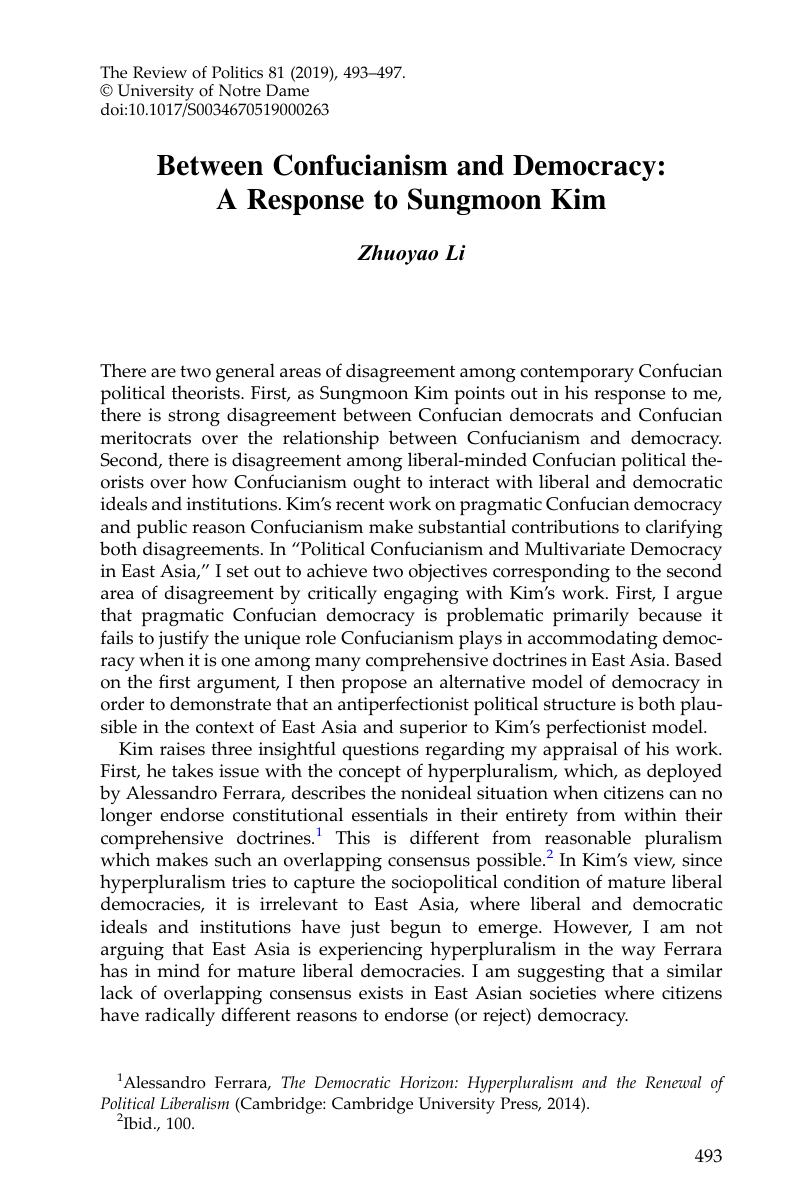No CrossRef data available.
Article contents
Between Confucianism and Democracy: A Response to Sungmoon Kim
Published online by Cambridge University Press: 22 July 2019
Abstract

- Type
- Research Article
- Information
- Copyright
- Copyright © University of Notre Dame 2019
References
1 Ferrara, Alessandro, The Democratic Horizon: Hyperpluralism and the Renewal of Political Liberalism (Cambridge: Cambridge University Press, 2014)CrossRefGoogle Scholar.
2 Ibid., 100.
3 Kim, Sungmoon, “Pragmatic Confucian Democracy: Rethinking the Value of Democracy in East Asia,” Journal of Politics 79, no. 1 (Jan. 2017): 241CrossRefGoogle Scholar.
4 Li, Zhuoyao, “The Discontents of Moderate Political Confucianism and the Future of Democracy in East Asia,” Philosophy East & West 68, no. 4 (Oct. 2018): 1193–218CrossRefGoogle Scholar.
5 Page 468–469.
6 I am using Kim's terminology here. A Confucian classicist is someone who is devoted to the exposition and (re)interpretation of Confucian classics and commentaries. See Kim, Sungmoon, “Public Reason Confucianism: A Construction,” American Political Science Review 109, no. 1 (Feb. 2015): 199CrossRefGoogle Scholar.
7 Rawls, John, Political Liberalism, expanded ed. (New York: Columbia University Press, 2005), 36Google Scholar.


